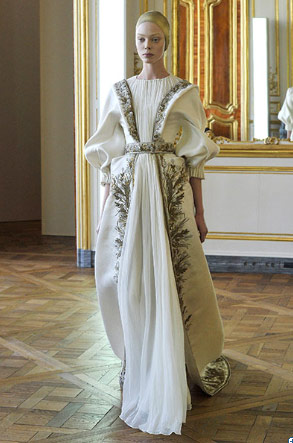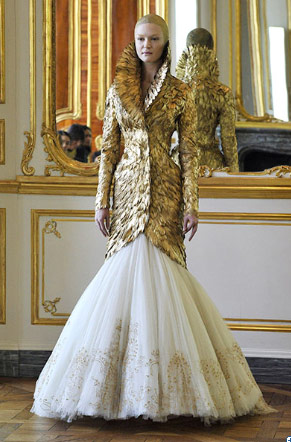Word on the street is that Paramount have confirmed Pierre Morel (Taken, District 13) as the new director of the film adaptation of one of the best science fiction novels ever written – Frank Herbert’s densely plotted Dune.
Dune is frequently cited as the world's best-selling science fiction novel, a masterpiece which has won prestigious awards, an army of followers and a three-decade span of tinsel town screen adaptation efforts.
Since 1971, man has sought to adapt this 1965 masterpiece into a visually digestible, two hour film. The process of trying to write a screenplay, design the set or direct the film within itself has almost become a rite of passage for many a film industry talent.
A case of: You aint nothing in this business unless you gained a few grey hairs trying to get this onto the silver screen, type-a-thing.
There was even a small screen adaptation at one point.
And tried, they certainly did.
Directors, set designers, screenwriters and producers – from Salvador Dali to Ridley-yes-govnor-Scott to Pink Floyd, have signed on and mysteriously signed off from the project for a variety of reasons. Each time leaving a bigger mess for the next guy to sort out.
Even the author of the book knows that it’s just too hard to translate into film, surely a red flag for anyone attempting to get this beast off the ground:“A lot of people tried to film Dune. They all failed. I tried writing a screenplay of it, once. It was rotten."
In Alvin Conway’s superb essay on Dune for Extrovert Magazine, he asks: If Herbert had difficulty devising a sensible screenplay from his own work, what hope could there be that anyone else could? The Dune novel was a literary animal that could swallow a writer whole.
The first film adaptation by David Lynch, which was unleashed on bemused cinema goers in 1984, is a bona fida cult midnight-movie classic of the noire-baroque/raygun gothic variety.
Think baroque costumes, Matrix-style black leather/latex,
Dark City style slap heads with death on their minds, Brazil-style rayguns, golden sphinx, ornate settings with etched carvings, Blade Runner style pillars ect ect. Oh and Sting wearing a futuristic version of a prodigal messiah’s loin cloth. Nice package Sting. Is that a raygun in your pants, or are you just happy to see us?
Sting totally disowned the film by the way - he was quoted somewhere as saying that he hated it and found it confusing.
Now, over twenty years on from that cursed production, Lynch has worked hard to disown this pickled love child of a film, even though he traded directing Return of the Jedi for three years of Dune production hell.
"In particularly Lynchian fashion, the director’s credit of the TV version of Dune lists the fictitious name of ‘Alan Smithee’ as director, and the name of ‘Judas Booth’ as screenwriter in the extended TV cut. Judas betrayed Jesus, and Booth killed Lincoln. If Dune’s plot wasn’t crystal clear for many devoted Herbert fans, Lynch’s intentions certainly were. The studio had betrayed him and killed his movie" says Alvin Conway in his article.
Looking back, an artistically-castrated Lynch reflected:
“That picture cut me off at the knees, maybe even a little higher. I went pretty insane on that picture. Little by little, I was making compromises. It was like, ‘We have to watch David. If he goes in the direction of Eraserhead, we’re dead in the water,’ so I had to be restrained. I just feel into this middle world. It was a sad place to be.” Poor baby.
Despite the huge production budget, elaborate sets and the all star cast which included Patrick Stewart sporting a mullet (yes a mullet), a pre-Evangelista Kyle MacLachlan and many others you only recognise by face and not name (like that crazy arsed shoe killer woman in the James Bond films), the film flopped dramatically at the box office.
ENTER THE CULT STATUS BLUEPRINT
After $50 million was spent on production costs, 1700 people were employed, 80 sets were built and 16 different sound stages set up, 20,000 studio extras and 53 speaking roles had been cast – what did the critics have to say:
The critics slammed it for being too complicated, long and weird. And in those days, critics yielded incredible power on how films were received."This movie is a real mess, an incomprehensible, ugly, unstructured, pointless excursion into the murkier realms of one of the most confusing screenplays of all time.” Roger OUCH Ebert
One person who actually did appreciate Lynch’s vision was the author himself, who went on to say: "The characters are exactly as I have envisioned them... sometimes even better..."
One of the biggest failures of the Lynch version, in my opinion anyway, is the poor special effects in the film, which compared to Alien, Blade Runner and Star Wars, looked totally amateurish at times, which created a barrier between the film and the viewer. If the plot seemed totally unrealistic, the poor special effects combined with the three-hour lenght of the film did nothing to make it more "real". It might not be the most expensive b-movie ever made, but that might just be one reason why it has become a cult classic.
Another reason, as the Larkin-esque passage of time has shown, is that films that flopped upon release because they were too ahead of their time are usually endowed with the correct blueprint for becoming cult classics – especially when a whole legion of people start getting excited about the director’s final cut.
Blade Runner, which came out two years before Dune, was utterly slated for being dark, complicated and dystopian. It was only with the proliferation of VCR coupled with the release of a whole set of Director’s cuts, that it started gaining real popularity, and that all too desirable cult status, which directors covet.
Dune never had the whole Director's Cut phenonmenon, but it had a whole lot of style, originality and even magic about it, which has made it a firm favourite with even the most discerning sci-fi lover. I know because I have actually surveyed my two favourite sci-fi heads, one of which is on the board of Star Wars trivia heads. And they have both agreed that Dune is a Sci-Fi great.
Before poor Lynch got his mitts on Dune, it was a Alejandro Jodorowsky project, which didn’t even make it to the screen in the first place because he blew the budget on Peruvian marching powder pre-production. This is what the author had to say:
“Alejandro Jodorowsky spent a couple of million dollars in preproduction of his version. He even hired Salvador Dali as his production designer. Nothing ever happened. I'm not quite sure why it fizzled. Without exaggeration, his script would have made an eleven-or-twelve-hour movie. It was the size of a phone book. It was pretty anti-Catholic, too."
BUT WHAT IS DUNE ACTUALLY ABOUT?
Set in the far future amidst a sprawling feudal interstellar empire where planetary fiefdoms are controlled by noble houses that owe an allegiance to the Imperial House Corrino, Dune tells the story of young Paul Atreides (the heir apparent to Duke Leto Atreides and the scion of House Atreides) as he and his family accept control of the desert planet Arrakis, the only source of the "spice" melange, the most important and valuable substance in the universe. The story explores the complex and multi-layered interactions of politics, religion, ecology, technology, and human emotion, as the forces of the Empire confront each other for control of Arrakis and its "spice".
A SOURCE OF INSPIRATION PERHAPS?
Come to think of it, the central plot line surrounding the mining of “spice melange – the most valuable substance in the universe ”sounds familiar to Avatar don’t you think?
But then, that should not come as a surprise, as the book is The Grand Daddy of science fiction comparable only to Lord of the Rings in the epic stakes. Whilst watching it, I could see where Luc Besson got some of his character ideas for Fifth Element (the designs in Dune look just like the Mondoshawan), the Strangers in Dark City recall the various slap-heads in Dune, the prodigal girl-child in Dune has the same voice as the prodigial girl-child in Apocalypto. Scary as fuck.
In turn, some of the design looks in Dune also seems to be inspired by METROPILIS, as well as the organic-mechanic Giger look from Alien. Giger even went on to design Harkonnen throne for Dune, which was never used, but can be found in one of his museums.
FUTURE FASHION
I also think that Mcqueen must have been inspired by the look of the film somewhere down the fashion line:
Lynch, Herbert and the 1700 cast members which made this film happen, we salute you.

















No comments:
Post a Comment